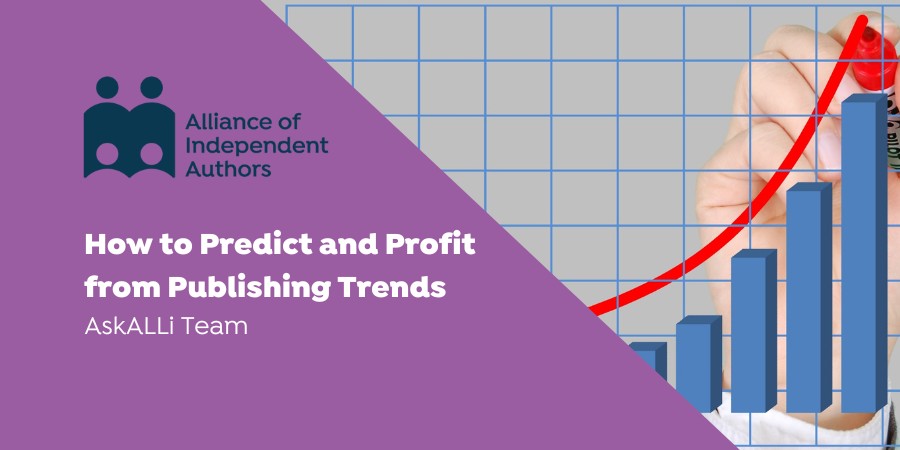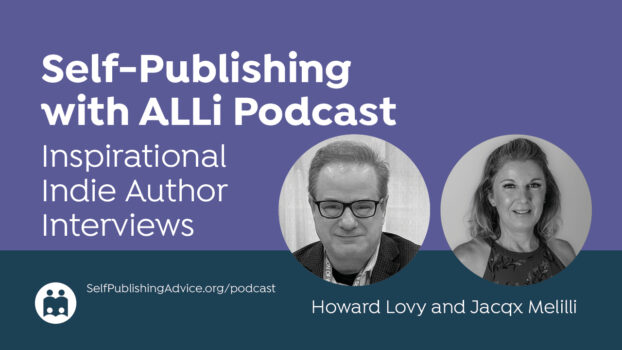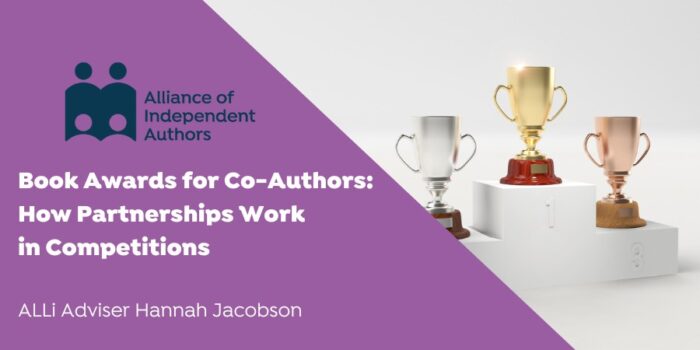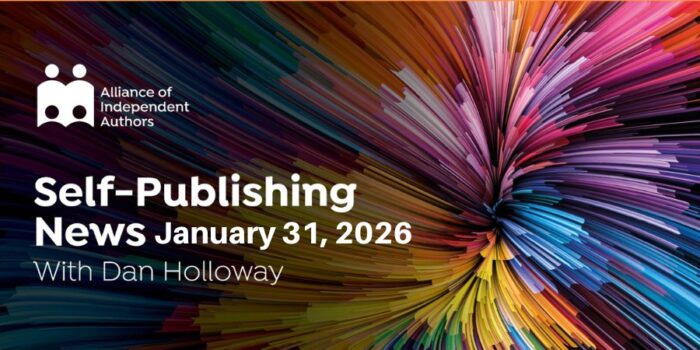Whether you're a firm fan of futurism or a little hesitant about where tech and other trends might be taking us, engaging with what's to come is important in sustaining a profitable business in publishing, as in any other field. Four women in our industry who have a keen eye for predicting future trends are Alliance of Independent Authors Director Orna Ross, Enterprise Advisor and futurist Joanna Penn, strategist for authors and publishers, Jane Friedman, and author success coach Becca Syme. Today, the AskALLi team asks them how they predict and profit from publishing trends–so you might do the same.
We can't predict the future with any level of guarantee, but we can make educated guesses. Some people are much better and much more accurate with those guesses than others. So we asked: How do they do it? Are there techniques and tools they can pass on? What are the main trend indie authors should pay attention to right now? But first….
Why Predict Trends Anyway?
In publishing, change is inevitable. We only have to look at the history of self-publishing to see that change is the only constant. In our industry, change used to happen slowly (nothing much between Gutenburg and desktop publishing) but that all changed in the twenty-first century, particularly when authors caught hold of self-publishing.
But not all aspects of the industry change at the same rate. Today, digital publishing technology fires fast change, accelerated by augmented intelligence tools. Other important changes, like popular tropes and trends in your genre, change more slowly. Cover styles vary across months and years. Business models seem to stay glacial but can then collapse or transform, e.g. the monumental difference made by Amazon Kindle and then Kindle Unlimited.
We are in the midst of exciting technological and social developments that are highly favorable to entrepreneurial authors.
Such authors want to run profitable businesses that are sustainable for the long term. If we can be ahead of the curve, or at least catch it as the change begins, we're more likely to succeed. We have seen many times how writers have been rewarded for early adoption of winning tech and tools.
Orna Ross on the Importance of Knowing What's Important to YOU
I look ahead because publishing books, especially publishing our own books, is hard–and knowing about innovative tools, emerging technologies, or new way of doing things might give us an advantage. Also, it's part of ALLi's job. As an independent authors' association, it's part of our remit to inform and update our community–the most forward-focussed, pioneering authors on the planet. We need to stay abreast and point up what's happening, as we see it.
So how do we know which trends are worth following and which are going to die a death?
For me, the process of future gleaning is much like that of writing. I get a twinge of excitement and follow that curiosity, all the while looking back as I look forward. Sometimes the industry feels frenetic and future-fired, but in other ways it can feel like nothing much has changed in a thousand years.
The past shows us how often a sure thing didn't happen and how the unexpected or unimagined can sweep in and take everyone by surprise.
Questions I always ask whenever anyone talks about a trend or tool:
- Who will this impact the most? Is this truly about publishing books as an author, or is it something that only applies to third-party publishing?
- What is this most likely to mean for us? (indie authors)
Once something has grabbed my interest, I'll read widely about it, not just non-fiction but stories and poetry too. I listen to oodles of podcasts, and always read people whose opinions and take on the world are different to mine. It's important to know your own biases. You don't have to change your lens on writing or life, but you have to be able to see beyond them, if you want to spot trends.
I would say that the main trend to pay attention to right now (besides working out which of the new AI-powered tools is of most use to you), is the shift in the economy from what business people call “B to B” (in our business, publishers to bookstores, via wholesalers and distributors) to “B to C” (publishers to consumers). Which in our sector translates as authors to readers.
If you don't yet have a transactional author website or Shopify store or equivalent, it's time to get one and start shifting at least some of your marketing in that direction. Many authors, seeing and feeling the changes happening around big tech, are going all in.
Publishing commentary tends to be a bit gloom-and-doomy. It always surprises me how many commentators overlook the most positive trends. More people are reading and writing than ever before. More people have access to publishing than ever before. Not everyone by any means, but both writing and publishing are less privileged than they used to be. (Prediction: that's a trend that will continue and self-publishing will be core to that).
Any author with good writing and publishing skills can make a living from their writing now, as never before. Look closely, experiment and explore, and soon you'll enjoy seeing your predictions come to pass and your publishing business reaping the rewards.

Jane Friedman, co-founder of The Hot Sheet
Jane Friedman on the Importance of Inputting Everything
Jane Friedman has 20 years of experience in the publishing industry, with expertise in business strategy for authors and publishers. She’s the co-founder and editor of The Hot Sheet, a paid newsletter for authors, and has previously worked for Writer’s Digest and the Virginia Quarterly Review. In 2019, Jane was awarded Publishing Commentator of the Year by Digital Book World; her newsletter was awarded Media Outlet of the Year in 2020.
If you want to notice or predict trends, it helps to be curious about new tools and technology, rather than resistant. Of course, it's normal to fear change, and not all change is good, but an open mind is a requirement. On the flip side, it remains important to be skeptical and apply critical thinking. Many businesses or startups want to sell you on their vision and have enormous self-interest in “predicting” a future that makes them rich.
I subscribe to hundreds of newsletters and media sources, which is important for getting out of the writing/publishing bubble, and seeing the bigger picture. I read thought leaders and authors I don't agree with, because if you want to see what's coming down the road, you have to be able to set aside your own biases and anticipate you have blind spots. If you're giving yourself a consistent diet of critical information and analysis, you can feel the winds shifting or you can notice patterns over many months, even years—what practices or businesses are growing increasingly challenged, and where growth and opportunity lie.
Finally, anyone who wants to predict the future needs a strong handle on the present and past conditions of the industry. Too many people who think they know what's going to happen in the future don't even understand the business model of publishers or authors. So if you want to predict the future, then I suggest knowing how we've reached the point we're at today and why some things have been so slow and difficult to change.

ALLi Advisor, Joanna Penn
Joanna Penn on the Inevitability of Change
Joanna Penn writes non-fiction for authors and is an award-nominated, New York Times and USA Today bestselling thriller author as J.F.Penn. She’s an award-winning podcaster and creative entrepreneur. Find out more about her on her website.
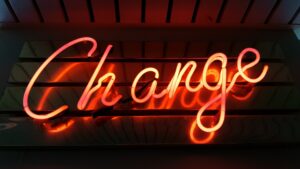
Photo by Ross Findon on Unsplash
This initial interest led to other books, like AI Superpowers by Kai-Fu Lee, The Inevitable by Kevin Kelly, and more. When I discovered an author, I then listened to podcasts, followed them on Twitter and started to curate lists of people commentating in the area, as well as subscribing to newsletters. I also attend events like Wired Smarter and other future-focused live sessions.
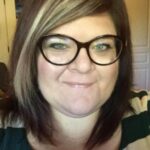
Becca Syme, Success Coach
Becca Syme on Coaching Writers and Seeing Trends
Becca Syme holds a master’s degree in transformational leadership and has been a success coach (primarily utilizing the Gallup Strengthsfinder®) for almost fifteen years. She’s coached 4,700+ individual authors and creatives through her Write Better-Faster and Strengths for Writers classes & coaching cohorts: six- and seven-figure authors, major award winners, midlisters, and new authors alike. Becca is the host of the YouTube QuitCast channel and a mystery author. She lives in the mountains of Montana. You can find out more on the QuitCast.
My future gaze is usually based on trying to make the industry more sane because I am also a writer and I have to live and work inside whatever we create together. Anxiety makes us act crazy, and uncertainty increases anxiety. So almost all of my future gaze is about trying to bring more certainty to a frenetic industry so we can all understand the rules and know how to have more success. This makes the industry feel more stable and makes me feel more stable.
If you want to future gaze, pay attention to the people who are named in this article. Before I started coaching and could hear the trends for myself, I was listening to these women and trying to adjust my decisions according to what resonated about their advice. Not all of us are wired to look into the future and anticipate, but I think these women are. I value them for that.

